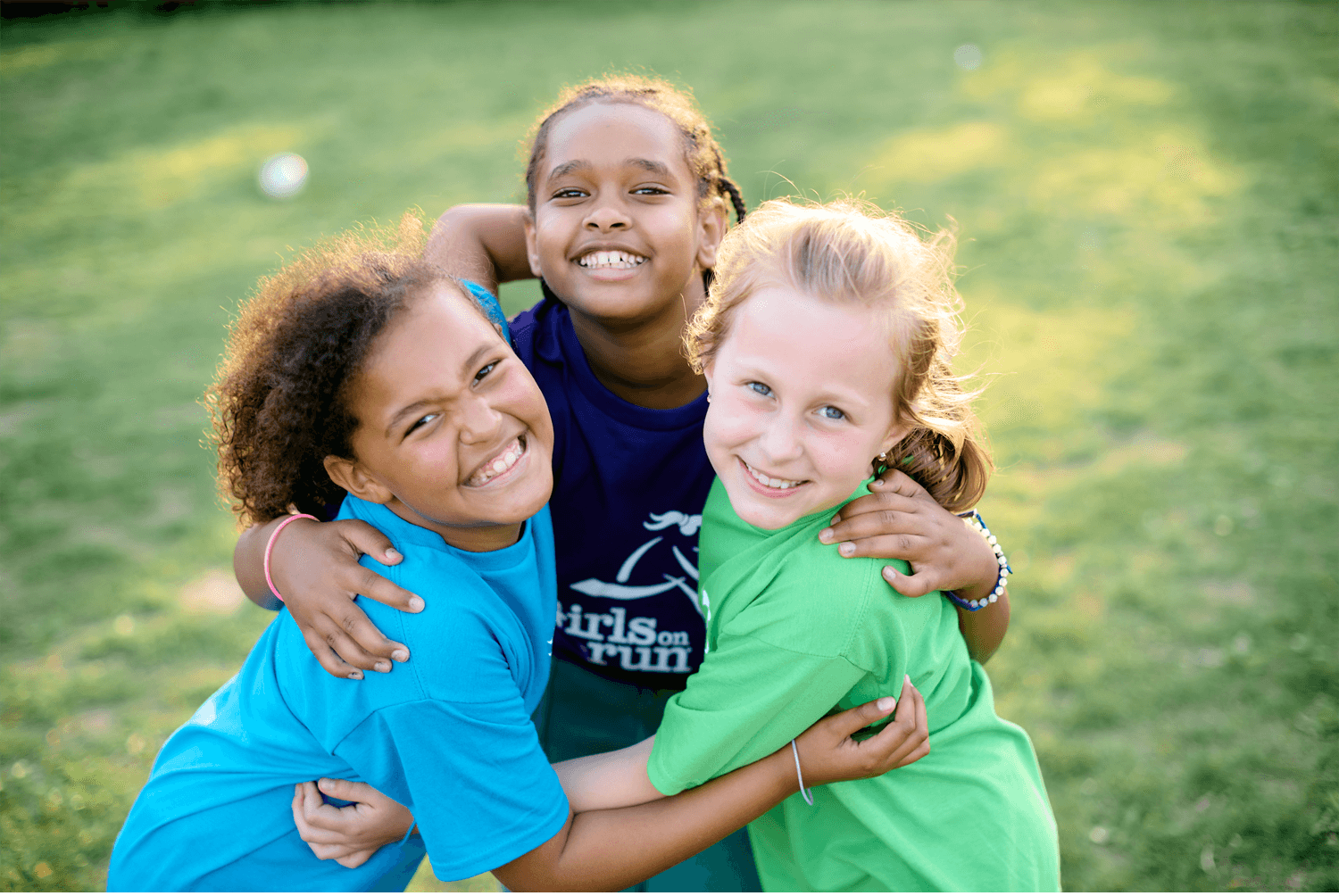Girls on the Run has fun, evidence-based programs that inspire all girls to build their confidence, kindness and decision-making skills. Dynamic lessons instill valuable life skills, including the important connection between physical and emotional health. Giant Food has supported this organization through its Community Bag Program.
Tell us about Girls on the Run Montgomery County.
Our mission is to deliver a quality program that educationally prepares young girls for a lifetime of self-respect and healthy living. We strive to touch the lives of all girls throughout Montgomery County regardless of their family’s economic status.
We were founded in 2006, and our first season was in 2007. Girls on the Run International is quite a bit older, established in 1996. The way Girls on the Run works is that we’re an independent council, but there’s a national network as well.
A woman named Eve Mills started our chapter. She was a coach with Girls on the Run in Fairfax County, Virginia, and she coached her oldest daughter. Then, when she moved to Montgomery County, there wasn’t a program. She loved it so much that she decided to start one. We started with 89 girls in our very first season. And at our height before the pandemic, we reached over 5,000 girls in a year. You can see it grew very quickly.
What services do you provide to the community?
We provide two programs. The first is a 3rd through 5th-grade program called Girls on the Run. The program for 6th through 8th-grade girls is called Heart and Sole, like a sole of a running shoe. These are positive youth development programs that incorporate physical activity. The technical term for this in the curricular world is a P.A.P.Y.D. program (Physical Activity, Positive Youth Development), and we provide that.
The girls meet twice a week for an hour and a half for ten weeks. We prepare them for a 5K at the end of the ten weeks. All the girls, whether in Girls on the Run or Heart and Sole, come together twice a year, once in the fall and once in the spring, and they do that culminating event. But along the way, they’re getting lessons to deal with things like standing up for yourself and your friends and how to build those defenses against bullying. A lot of what goes into it is self-esteem and confidence building. But they’re running and training for this 5K simultaneously, so ultimately, the 5K provides confidence through accomplishment. You set your mind to something, set a goal, follow a path and achieve it. Confidence through accomplishment is what we’re trying to teach these girls.
A lot of what goes into it is self-esteem and confidence building. But they’re running and training for this 5K simultaneously, so ultimately, the 5K provides confidence through accomplishment.
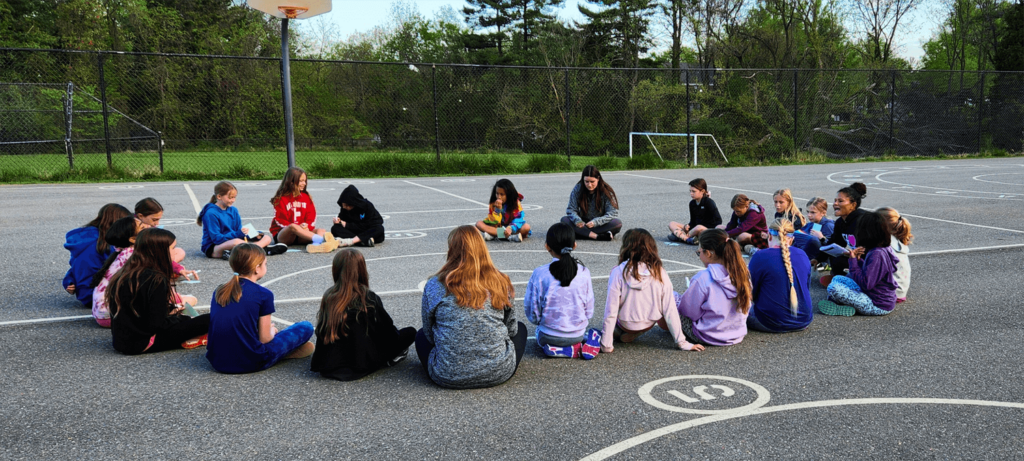
Some of our girls come to us, and they run all the time because they’re on sports teams. Their parents are looking for them to get the curriculum piece of it. Then we have girls who aren’t physically active and think there’s no way I could run or walk a 5K. That distance seems insurmountable. But what they realize is, over the course of that ten weeks, it’s possible. It’s those baby steps: you set your mind to this goal and take those steps. That’s what we do. Some girls show up on the first practice and can run consistently. And other girls have never run before and think, there’s no way. But they realize they can.
What sets you apart from other organizations in your community?
Our national coach training program has been lauded as one of the cornerstones and hallmarks of our program. This ensures that coaches get consistent quality training that gives them the confidence to deliver the program.
We’re one of three programs chosen by Harvard as the best social-emotional learning program. The idea is that we’re building empowerment for these kids and including physical activity. There are a lot of positive youth development programs out there or physical activity programs. There are very few that do both; we are one of them.
The U.S. Surgeon General highlighted us as one of the programs that help girls navigate social media and all the damage it can cause. In his report issued about a month ago, he noted that our program can help girls combat the harmful effects of social media.
I’ve been with Girls on the Run for 15 years now, and when I first started, we talked about glamorous magazine ads and how that form of beauty was edited and altered. It wasn’t real. And now it’s in your face with Instagram and Facebook; it’s so easily accessible. We try to dispel a lot of that. We work with the girls to help them navigate all that and give them a kind of armor, going into middle and high school because those are the fraught years.
We consider ourselves a prevention program. We get these girls young and try to give them those self-confidence tools to understand and dismiss some of that craziness on social media and in their relationships. Girls on the Run does a lot of work around confidence building.
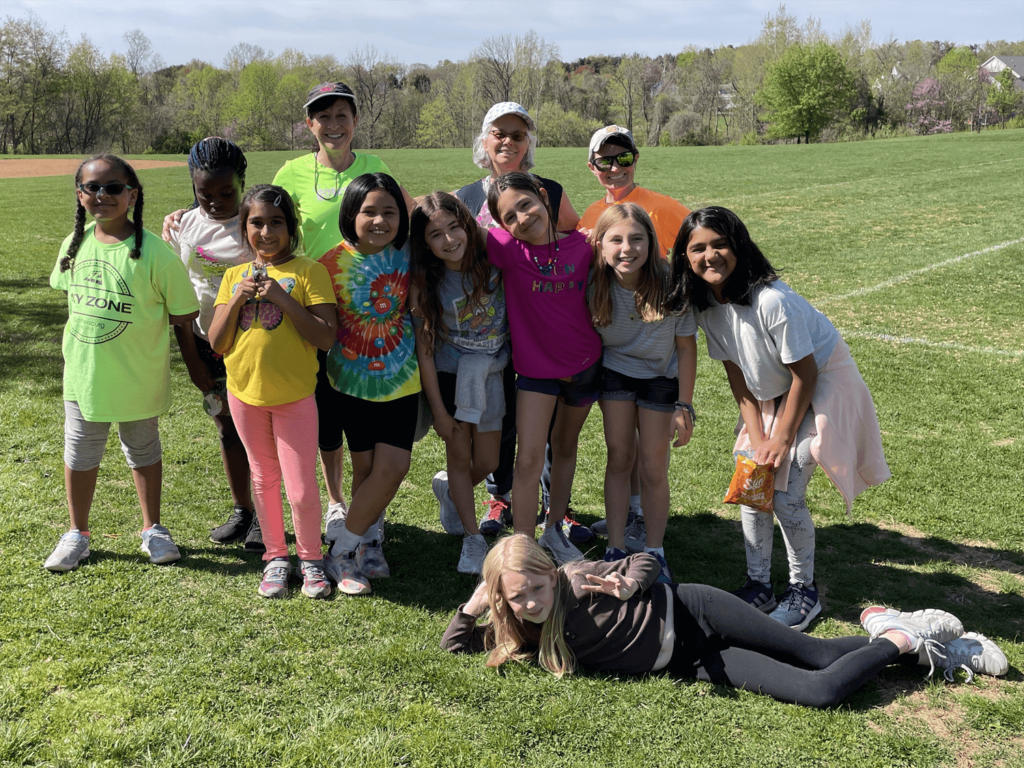
We consider ourselves a prevention program. We get these girls young and try to give them those self-confidence tools to understand and dismiss some of that craziness on social media and in their relationships.
Tell us a story that illustrates the good work of your organization.
We give a college scholarship every year to one alumna from our program. The girl we gave it to last year wrote me an email at the end of her first year in college. She told me it had been a year since she was honored with her scholarship, and she wanted to update me. She’s doing a dual program in Dublin, Ireland and at Columbia University.
This alum is Iranian, and she let me know she found herself in Dublin at a protest for solidarity for what all the women in Iran are going through. Women who won’t wear their hijabs have lost their lives.
She explained that she wanted to express her identity as a proud Iranian woman when she got to the protest. As an act of protest and advocacy, she cut off her hair in front of a group of students and ended up on the paper’s front page the following day. Then she was invited as a guest speaker at a university debate and worked alongside the university to bring awareness to human rights, specifically female rights in Iran.
She said that even though she’s not closer to a solution for Iranian women, she was so proud that she believed in herself and glad the lessons she learned about advocacy and standing up for yourself at Girls on the Run fueled her passion. This is a heartwarming story for us that speaks to the value of this program. Many girls return after college and say they got so much out of being a part of Girls on the Run.
What is your most outstanding achievement or contribution to the community?
100% of our financial aid goes to underserved girls in our community. We strive to touch the lives of all the young girls that want to participate regardless of their family’s economic status.
In our 15-year history, we’ve given Montgomery County families over $1.2 million in financial aid so their daughters can participate. If someone comes to us and says, “I can’t afford the program,” we have a sliding scale for those families. Often underserved families join at no cost and get a free pair of brand-new running shoes because we want to ensure that anyone who wishes to participate has the proper gear.
We strive to touch the lives of all the young girls that want to participate regardless of their family’s economic status.
It’s really the financial aid that takes down that barrier to participation because when families see the price of the program, it can be a non-starter for a lot of them. In our Title 1 schools, the federally funded underserved schools, we remove prices from the registration so that the families don’t feel intimidated or that they have to ask for financial aid. We go out to these schools with grant funding earmarked explicitly for Title 1 schools. This erases any barriers to participation for these students.
What do you want people to know about Girls on the Run Montgomery County?
It really is for any girl that wishes to participate.
Everyone will get something out of this program regarding the lessons learned. Our coaches are dedicated to these girls. They’re all volunteers and want to ensure the girls have that mentored relationship through these lessons.
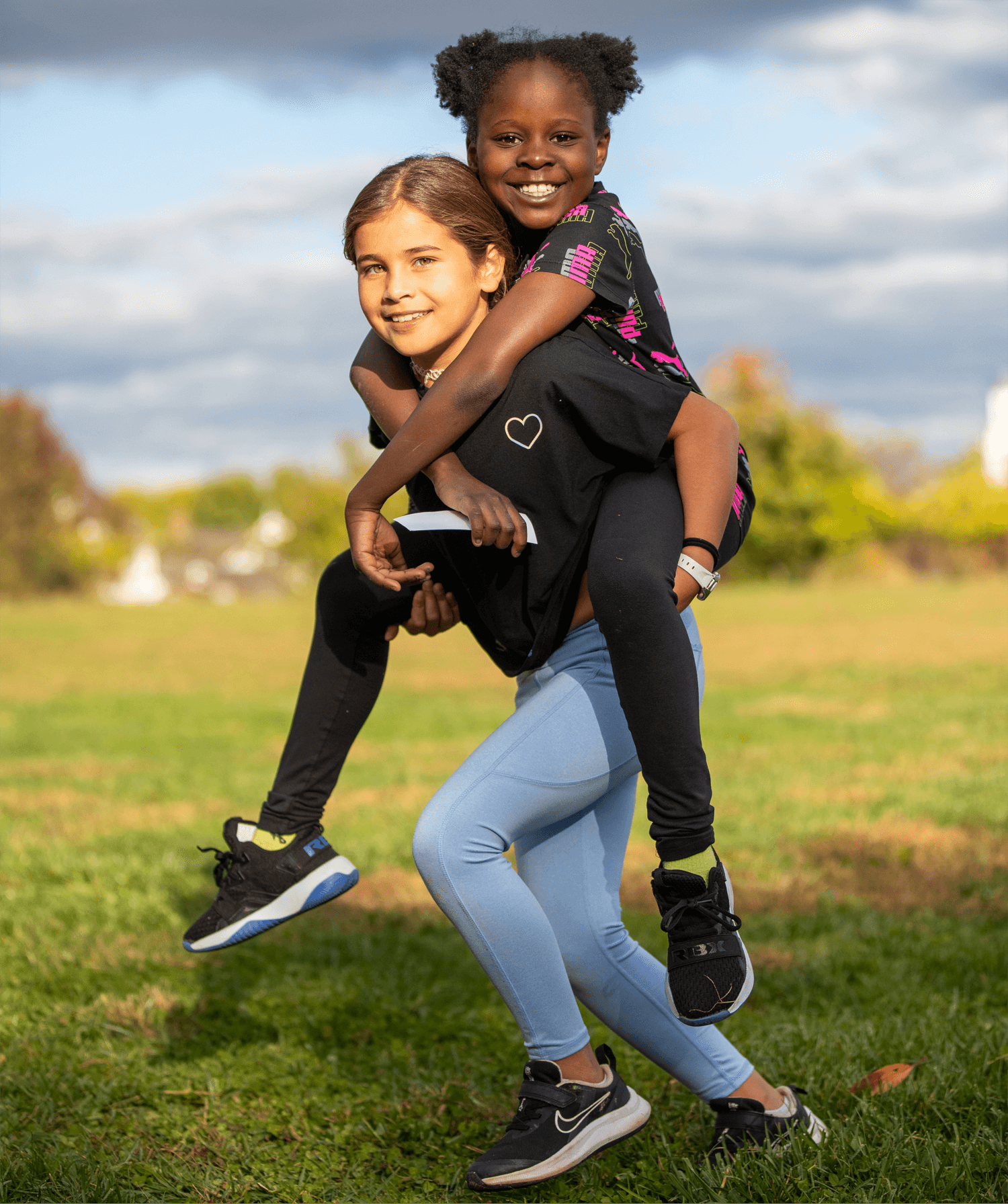
Many of our coaches come out of the program going, “Gosh, I wish there was a program like this for me when I was growing up; I would have more confidence.” We are working to change that narrative. Any girl will benefit regardless. Whether she could pay for this program ten times over or can’t afford it at all, that part doesn’t matter. What we’re teaching the girls levels the playing field regarding who can participate. You don’t have to be an athlete to do it. No one gets cut from Girls on the Run.
The program is also good for the coaches; we’ll often get coach surveys back that say they got so much out of the program, too. The lessons resonate with them just as much as the girls. It doesn’t matter how old you are, handling difficult situations and taking a breather are suitable life lessons for everyone. The coaches bond with the girls during that 10-week season and impart wisdom from their perspectives. The relationships created are a beautiful part of this process.
It doesn’t matter how old you are, handling difficult situations and taking a breather are suitable life lessons for everyone.
How do you use the funds raised from the Giant Food Community Bag Program?
All our funding, any donation that comes in the door, goes right to financial aid and shoes for the girls.
Is there anything you’d like to add?
If someone is interested in bringing the program to their community or school, they can contact us on our website, www.girlsontherunofmoco.org. We’re always happy to talk to new people interested in bringing Girls on the Run to their community.
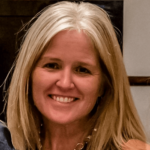
Elizabeth McGlynn is the Executive Director of Girls on the Run Montgomery County.
Published August 10, 2023.

